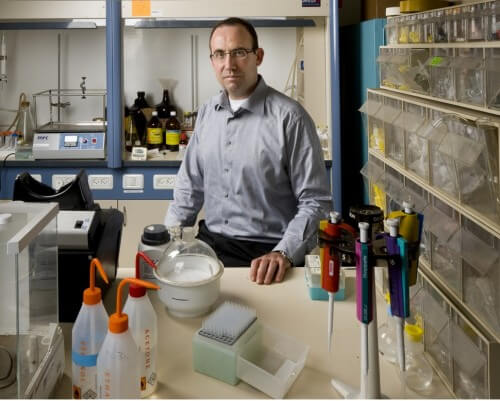The "Nano-Israel 2014" conference and the accompanying exhibition will be held this year between March 24 and 25, 2014 at the David Intercontinental Hotel in Tel Aviv

"Ramot", the technology commercialization company of Tel Aviv University, will present, as part of the "Nano-Israel 2014" conference and the accompanying exhibition, peptide nanostructures that are formed by self-assembly, which can be used in a variety of fields, from electronics and electro-optics, through sensors and bio-sensors, drug delivery from targeted to diagnostic applications and uses of composite materials. The main researcher in the project is Prof. Ehud Gazit, from the Department of Biotechnology and Molecular Microbiology, Faculty of Life Sciences, Tel Aviv University and has a secondary appointment in the Department of Materials Science and Engineering in the Faculty of Engineering at the university.
Aromatic dipeptides are able to spontaneously assemble into discrete nanostructures with unique properties. Nanotubes from these peptides are homogeneous, hollow, stable and can be used as templates to create conductive nanowires suitable for various applications. The structures themselves are semiconductors, with unique optical properties, considerable mechanical strength and piezoelectric properties similar to the industrial standard. The materials are environmentally friendly, non-toxic and do not contain heavy metals.
Potential applications include the ability of peptide nanotubes to directly replace carbon nanotubes as a uniform, easy-to-produce, and inexpensive alternative. Peptide nanotubes can be used as light emitters for thin screens, they can be used in sensors and biosensors that are highly sensitive to dangerous biological and chemical substances, hollow tubing can be used for microfluidics, in biotechnology, and to provide direction and release of drugs for diagnostic applications, as artificial membrane channels and for use in a variety of composite materials, dyes and coating surfaces.
"The new nanometer structures make it possible to obtain unique physical properties in the electronic, optical and mechanical fields," says Prof. Gazit. "Nano biotechnology provides new tools for the creation of different nanometric architectures, in the rare and efficient production of environmentally friendly nanometric materials. The peptide-based nanotubes and nanospheres open up a wide range of possibilities in the field of nanotechnology."
Prof. Gazit has eight advantages to the new technology: nanotubes are discrete and uniform, they are cheap and easy to produce, production is done under favorable environmental conditions, they are stable and resistant to enzymatic degradation, they exhibit exceptional durability, they have biocompatibility and a wide range of chemical and physical properties and they can To be used as a uniform template for the creation of composite nanostructures.
